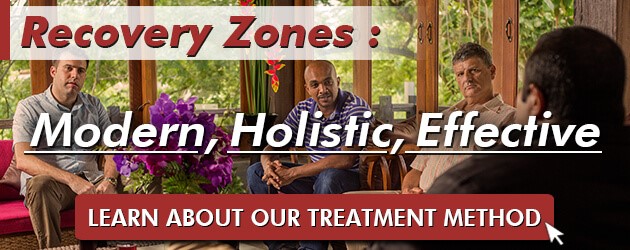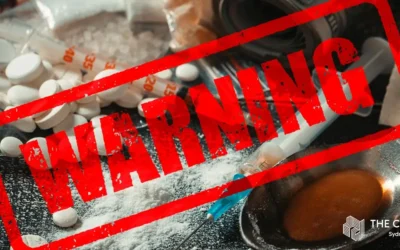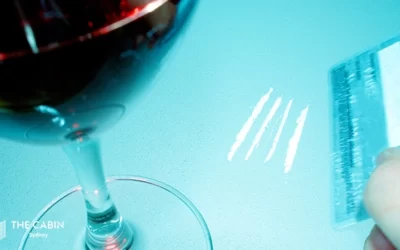Do you find yourself obsessing over imaginary worst-case scenarios? This is called catastrophic thinking, and it can cause you unnecessary suffering and threaten your sobriety. Find out how to put it to rest with these four simple tricks.

Sharelines
Worrying about big decisions, major changes or risky situations is normal, but being paralysed by fear because of some imagined future is counterproductive and can threaten your sobriety. If thoughts of potential disasters have you reaching for substances for relief, or if you’re afraid to seek treatment for problematic drug or alcohol use because it’s the only way to keep your worrying thoughts at bay, it’s time to address this problem once and for all.
What is Catastrophic Thinking?
Catastrophic thinking is a form of anxiety disorder. It involves imagining the worst possible outcome for a situation, obsessing about it and convincing yourself that it’s your unavoidable future. For example, if you call home and your wife doesn’t answer, you might imagine she’s with another lover and start to dwell on how miserable your life is going to be when she takes your children and leaves you all alone. More realistically, she probably just left her ringer off.
Types of Catastrophic Thinking
Catastrophic thoughts can come in endless shapes and sizes, but there are three types that are especially common:
Physical
This involves interpreting physical sensations as sure signs of serious illness. Stomach pain? It’s certainly a chronic disease. Headache? You definitely have a tumour. These thoughts can actually cause you physical harm through a phenomenon called the nocebo effect (essentially a reverse placebo effect).
Social
You see two of your friends at lunch and you weren’t invited. Do you convince yourself that they are talking about you, they don’t like you and they’re planning to humiliate you? This type of thinking can lead to very serious cases of social anxiety.
Accidents/ Danger
You call your son and he doesn’t pick up. Do you become convinced that he’s been in a terrible accident and imagine all of his injuries in graphic detail? This type of catastrophic thought is very common, and can cause you a great deal of unnecessary distress.
The Dangers of Catastrophic Thinking
It may come as no surprise that about 65 per cent of our self-talk is negative. While all negative self-chatter is typically bad, catastrophic thinking is especially toxic. Catastrophic thinking causes unnecessary stress – the number one addiction relapse trigger. This leads to spikes in cortisol (the stress hormone), which actually impairs your ability to react effectively if a crisis does arise. It can also make you lose hope, believing the worst-case scenario to be inevitable and seeing no point in taking action. This can turn into a self-fulfilling prophecy in which your dreadful imagined future becomes your perfectly avoidable reality.
In many situations, people turn to drugs or alcohol to cope with the discomfort caused by catastrophic thoughts.
The Link Between Catastrophising and Substance Abuse
The co-occurrence of anxiety disorders and substance abuse is remarkably common, with at least 75 per cent of these cases developing due to self-medication of anxiety issues with drugs or alcohol. Using substances to self-medicate can become so ingrained that it occurs almost automatically. At the first sign of discomfort, you may turn to your go-to substance without even realising why you’re doing it. You may not be aware that you’re engaging in catastrophic thinking until an attempt to quit drinking or doing drugs sends your thought patterns out of control.
4 Easy Ways to Stop ‘Awfulising’
Instead of letting imagined scenarios overwhelm you, or turning to substances to cope, follow these four simple tips:
1. Identify Your Catastrophic Thoughts
When fretting about future scenarios, ask yourself, ‘Am I causing my own suffering?’
The secret to overcoming catastrophic thinking is not to try to convince yourself that the disasters you’ve imagined can’t possibly come true, because in reality, these outcomes are often technically possible (though highly unlikely). The key is to recognise these thoughts for what they are, check them and stop them from causing needless suffering.
2. Centre Yourself Through Mindfulness
Mindfulness meditation is a powerful antidote to toxic thinking, and mindfulness therapy is a great tool for sobriety. It’s quite a simple concept, but it takes some practice to fully develop this skill.
Through mindfulness meditation, you can train yourself to be aware of your reactions and conditioned responses and learn to control them. So, next time you find yourself caught up in your thought patterns, you’ll be able to reel yourself back into the present moment rather than projecting yourself into an anxiety-ridden future.
3. Imagine the Best-case Scenario
What’s the most optimistic possible explanation for your situation? Once you’ve identified this best-case scenario, carefully consider the likelihood that this brighter possibility more closely represents reality than the disastrous conclusion you’ve come to. Catastrophic thinking is irrational, so this type of rationalising goes a long way toward banishing it.
4. Cognitive Behavioural Therapy
One of the most effective methods for managing anxious thoughts and catastrophising is cognitive behavioural therapy (CBT). During CBT sessions, you’ll learn to identify dysfunctional thoughts and behaviours, understand how they cause unnecessary stress in your life and develop strategies to eradicate them. CBT is commonly used in addiction treatment, as destructive thoughts and behaviours are very closely tied with substance abuse patterns.
The Cabin Can Help You Avoid Disastrous Thoughts and Protect Your Sobriety
Like any habit, mental habits are difficult to break. Changing this thinking however, is very important to maintaining your sobriety. Fortunately, The Cabin Sydney can help.
The highly skilled team of addiction experts at The Cabin Sydney have a deep understanding of catastrophic thinking and other types of anxiety and how they impact your recovery. Through CBT and mindfulness techniques, our practitioners will help you develop the tools you need to manage your negative thought patterns without relying on alcohol or drugs.
Stop causing your own suffering. Contact us today to learn to calm your mind and set yourself on the path to a happy life in recovery.




